Search Fellows
Click on a Fellow below to view more information or create your own search.
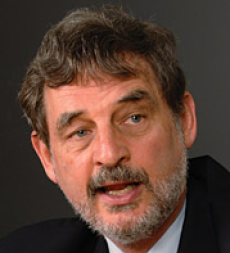
John H. Mollenkopf
City University of New York
Visiting Scholar
2000 to 2001
Philip Kasinitz and John Mollenkopf, professors of sociology and political science at the Graduate Center of the City University of New York, will analyze the findings of a major study of the new second generation of immigrants in metropolitan New York, which they are directing with Professor Mary Waters of Harvard University.
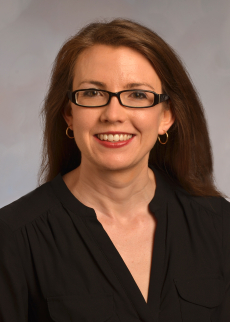
Jana Morgan
University of Tennessee
Visiting Scholar
2017 to 2018
Morgan will study how rising economic inequality has shaped the priorities of policymakers. She will explore the influence of wealthy voters on the congressional agenda and investigate why most politicians have not pursued initiatives designed to reduce inequality. She will also analyze a database of machine-readable congressional speeches and other sources to understand how monied interests have shaped legislators’ stances on pro-poor and pro-rich policies in the post-World War II period.
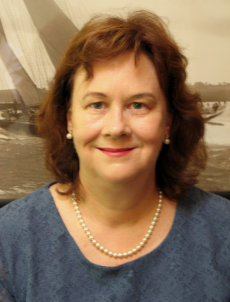
Rebecca Morton
New York University
Visiting Scholar
2007 to 2008
Rebecca Morton, Professor of Politics at New York University, will complete a book analyzing the significant variation in how election laws are administered across the nation and how this affects the U.S. political system. Her preliminary research shows that even if states have the same laws, the enforcement of those laws is often selective and influenced by partisan considerations.
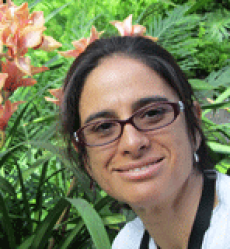
Maria Victoria Murillo
Columbia University
Visiting Scholar
2011 to 2012
Murillo will write a book exploring the impact of income inequality on voter expectations and the ability of political parties to respond equitably to rich and poor constituents. She argues that in democracies with high inequality, politicians are often torn between promoting policies that will serve the public good and responding to the narrower demands of particular groups. Murillo will utilize longitudinal data and in-depth interviews with elected politicians and political workers collected in Argentina, Peru, and Chile.
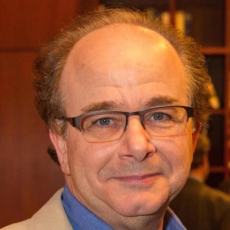
Jonathan Nagler
New York University
Visiting Scholar
2015 to 2016
Nagler will work on a book that examines how increases in economic inequality have affected voter turnout in congressional elections from 1972 through 2014. Using a variety of data sources not previously available, he will assess the ideologies of congressional candidates across many elections, and explore how turnout was affected by the ways in which voters from different income groups perceived those candidates' positions.
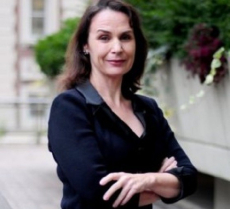
Sharyn O'Halloran
Columbia University
Visiting Scholar
2003 to 2004
Sharyn O'Halloran, associate professor of political science and international affairs at Columbia University, and David Epstein, associate professor of political science at Columbia University, will write a book that analyzes the impact of race-based districting on racial representation in Congress and on public policy. Epstein and O'Halloran will explore how districting strategies impact the ability of minority groups to affect the passage of legislation at both the national and state levels.
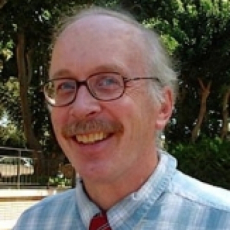
Barry O'Neill
University of California, Los Angeles
Visiting Scholar
2005 to 2006
Barry O’Neill, Professor of Political Science at University of California, Los Angeles, will conduct research on how public apologies can be used to resolve conflict and promote reconciliation between states or groups. He will discuss strategic dilemmas in apologizing, assess the importance of symbolism in apologies, and study apology patterns in different cultures. For the project, he will assemble a systematic database of international apologies that will discuss how and why they were made, and how they were received.
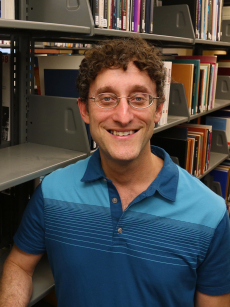
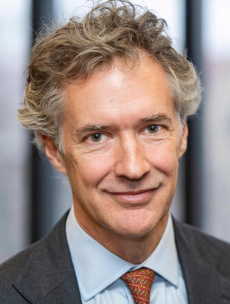
J. Eric Oliver
University of Chicago
Visiting Scholar
2002 to 2003
J. Eric Oliver, associate professor of political science at the University of Chicago, will write a book on the impact of multiracial segregation on American democracy. New waves of immigration from Asia and Latin America are forcing the United States to contend with the competing claims of a range of racial and ethnic groups. Yet even as the nation moves toward this multiracial plurality, most racial and ethnic groups continue to lead highly segregated lives.
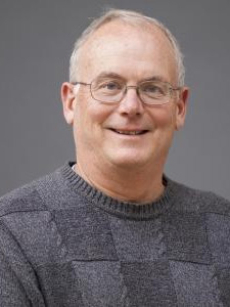
Thomas R. Palfrey
California Institute of Technology
Visiting Scholar
2014 to 2015
Palfrey will write a book on Quantal Response Equilibrium (QRE) and its applications to the social sciences. Developed by Palfrey and Richard McKelvey, QRE is a game theory concept that is now one of the leading approaches to modeling bounded rationality—the idea that individuals’ rationality is limited by the information they have—in games.
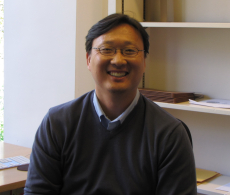
David K. Park
George Washington University
Visiting Scholar
2009 to 2010
David K. Park, assistant professor of political science at George Washington University, will advance a study examining how the electoral map of U.S. presidential elections shifted (in the years from 1876 to 2000) from red to blue among states along the coasts and from blue to red among states in the South and Midwest. Park will investigate possible causes for these reversals, including the distribution of wealth and inequality between the states, changes in political parties’ ideologies, changes in voter priorities, and the urban/rural divide.
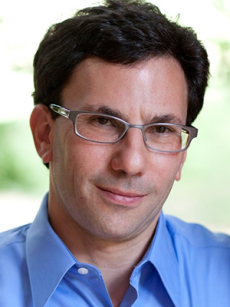
Eric Patashnik
Brown University
Visiting Scholar
2024 to 2025
Patashnik will examine the federal government’s performance as a problem-solving institution. Drawing on theories of political failure and a historical review of problem-solving activities across domestic issues, including education, environment, and healthcare, Patashnik will write a book about the contemporary policy state and how government’s capacity to frame and address important societal problems can be improved.
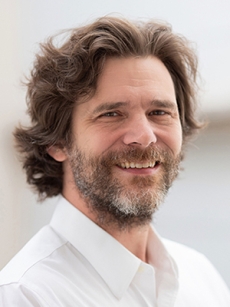
John Patty
Emory University
Visiting Scholar
2025 to 2026
Patty and Elizabeth Penn will examine how algorithms that classify people, such as the FICO credit score and Equivant’s COMPAS recidivism risk scoring algorithm, shape individual behavior and social outcomes. Their research will address questions such as how society should regulate algorithms and how issues of individual liberty and privacy should shape such regulations. They will utilize game theoretic modeling, interviews, and historical analysis of classification algorithms for their project.
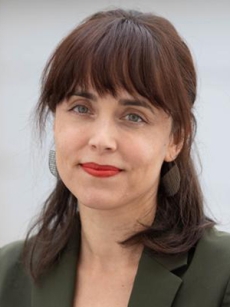
Elizabeth Penn
Emory University
Visiting Scholar
2025 to 2026
Penn and John Patty will examine how algorithms that classify people, such as the FICO credit score and Equivant’s COMPAS recidivism risk scoring algorithm, shape individual behavior and social outcomes. Their research will address questions such as how society should regulate algorithms and how issues of individual liberty and privacy should shape such regulations. They will utilize game theoretic modeling, interviews, and historical analysis of classification algorithms for their project.
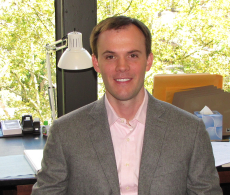
Justin Phillips
Columbia University
Visiting Scholar
2009 to 2010
Justin Phillips, assistant professor of political science at Columbia University, will collaborate with Leah Brooks, assistant professor of economics at the University of Toronto, in a working group examining how neighborhood conditions and community organizations in Chicago, Los Angeles, and Detroit are related to the political processes behind city redistributive policies. Specifically, the study will examine whether voter support of a particular politician influences the subsequent allocation of Community Development Block Grants.
Samuel L. Popkin
University of California, San Diego
Visiting Scholar
2008 to 2009
Samuel L. Popkin, Professor of Political Science at the University of California, San Diego, will complete a book on the history of presidential campaign strategy and decision-making. Popkin will trace the history of critical campaign decisions from 1948 onwards. He has completed archival research for the book and has interviewed strategists and pollsters from all campaigns since 1960.
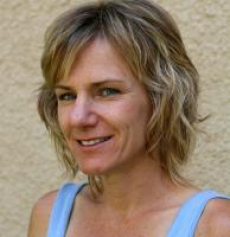
Wendy M. Rahn
University of Minnesota
Visiting Scholar
2011 to 2012
Rahn will work on a book manuscript examining the parallel between rising economic inequality and the growing political clout of citizen investors. She will show how the historical trends of rising inequality, the "financialization" of the American economy, and Americans’ expanded participation in the financial market have helped shape and condition citizen’s policy preferences and political behavior.
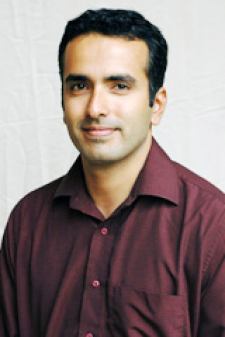
S. Karthick Ramakrishnan
University of California, Riverside
Visiting Scholar
2006 to 2007
S. Karthick Ramakrishnan, Assistant Professor of Political Science at University of California, Riverside, will spend the fall at the Foundation analyzing immigrant civic engagement and its implications for social and political inequality in several U.S. and Canadian cities. He will look at immigrant participation in mainstream and ethnic organizations, asking whether such behavior serves as a way for immigrants to combat inequality and improve their social position.
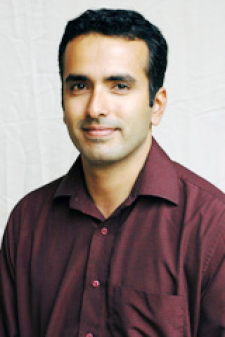
S. Karthick Ramakrishnan
University of California, Riverside
Visiting Scholar
2011 to 2012
Ramakrishnan will write a book that examines the contours and determinants of American public opinion on immigration. Using survey data and embedded survey experiments from 2006 through 2010, he will analyze the relative importance of racial prejudice, partisanship, economic anxiety, and rule-of-law concerns in shaping American attitudes towards immigrants and immigration policy. His project will also consider the ways in which public opinion on immigration may be similar to opinion on race-related issues such as affirmative action, and economic issues such as trade and offshoring.
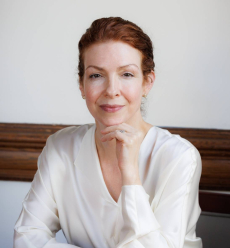
Rose Razaghian
Yale University
Visiting Scholar
2004 to 2005
Ira Katznelson, Ruggles Professor of Political Science and History at Columbia University, John Lapinski, Assistant Professor of Political Science at Yale University, and Rose Razaghian, Assistant Professor of Political Science at Yale University, form a working group that will examine the entire history of Congressional roll call votes to study how the type of policy at stake in legislative debate determines political relationships and outcomes.
